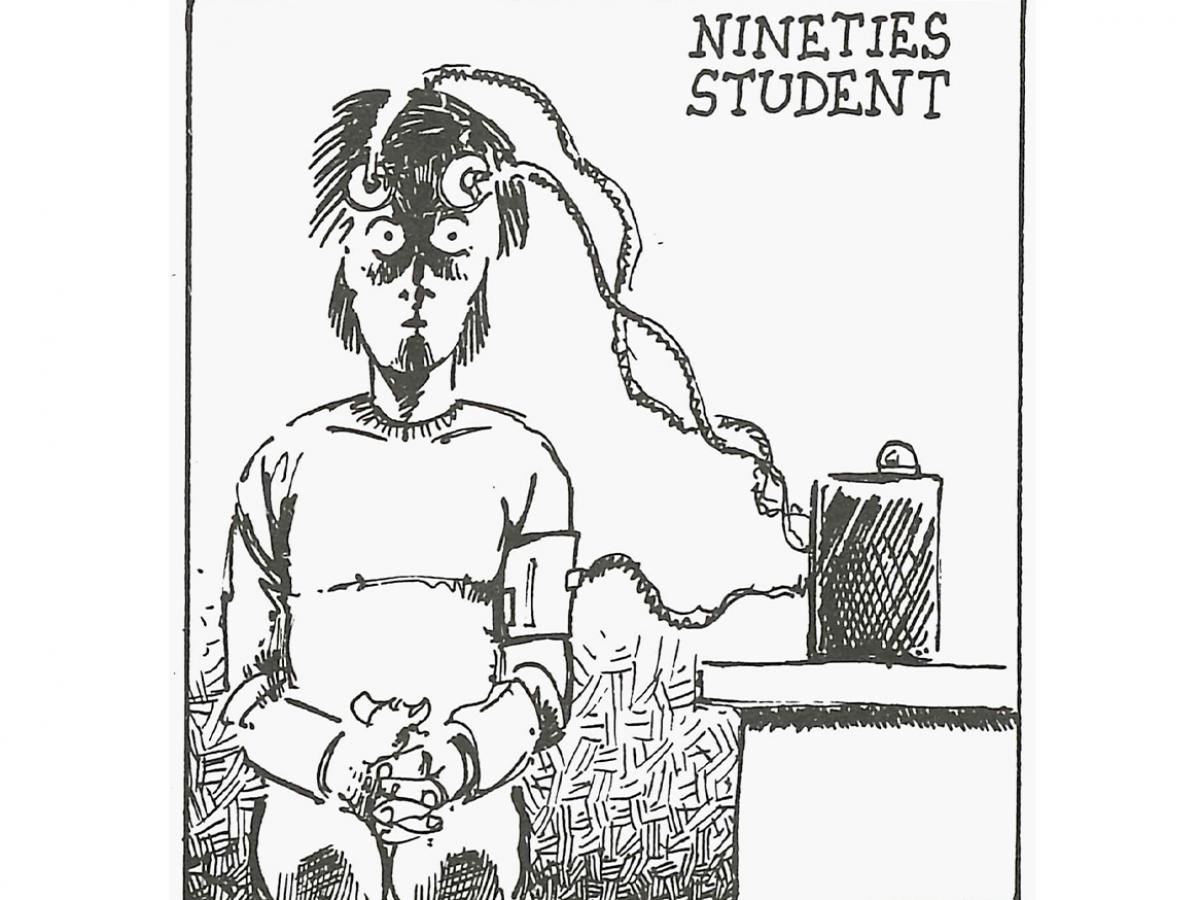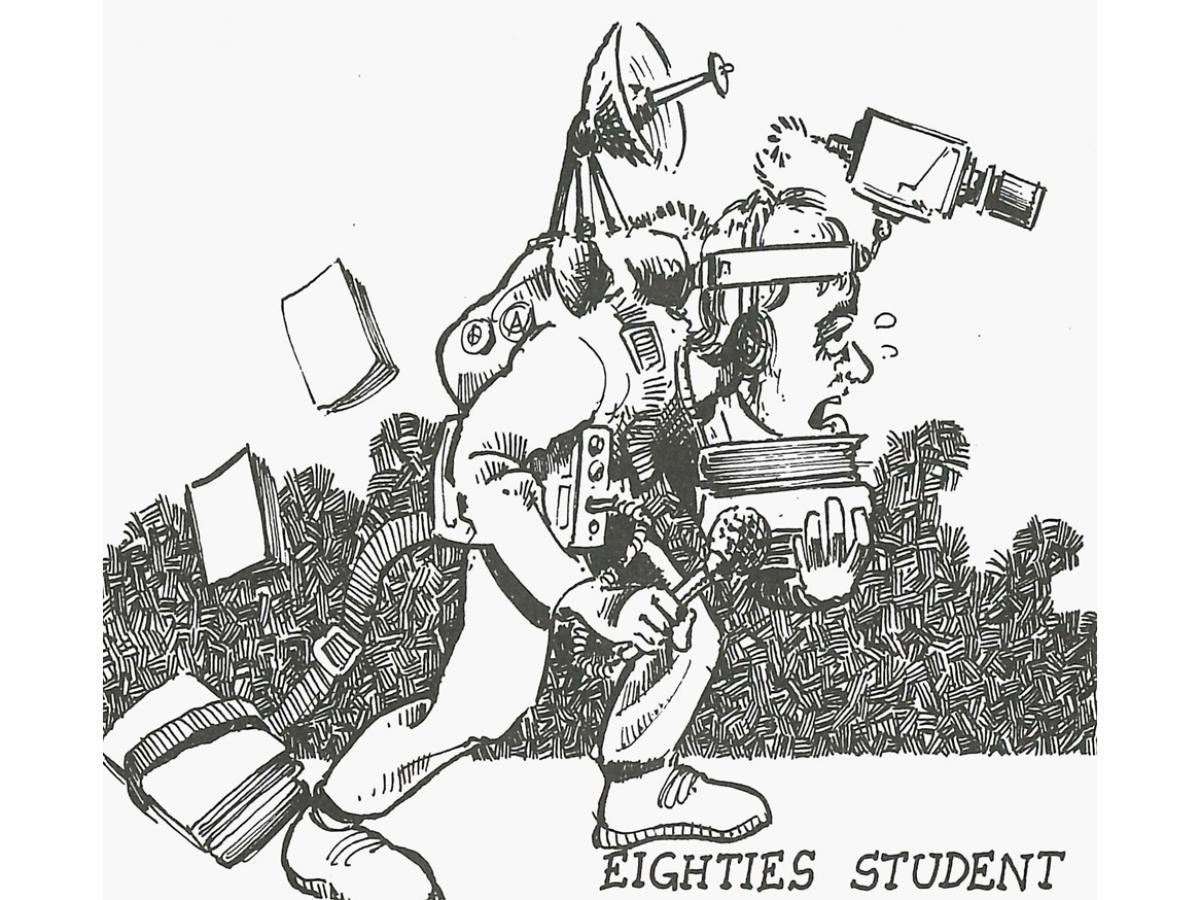Future history

While our history is our foundation, the future is being created now in the minds of our people.
If the past, as British writer Leslie Hartley famously said, is a foreign country, then the future is a land waiting for us to imagine it.
As we celebrate 150 years of our University’s past, we have our eyes firmly on the future – and how we will continue to make history.
To explore the breadth and importance of the work we are doing, Lumen spoke to the leaders of our eight research institutes, and our own academic leaders, to describe the most important work they are engaged in, and how it will change the future and impact people’s lives.
Our research institutes vary widely in the work they are doing. But they are united in the goals of sustainability and ongoing improvements for our people and environment. This is very clear at the Waite Research Institute where Professor Matt Tucker, Interim Director, tells Lumen: “There is no bigger issue than securing a sustainable and productive future for Earth’s agriculture.”
“Our research targets new crops, crop varieties and farming systems that will withstand climate change; create nutritious and delicious new food and premium wines; and develop on-demand production of sustainable bioresources such as biofuels and recyclable plastics.”
Lighting the way
It may not be obvious how the manipulation of light may also reshape the future – but this is exactly the work the Institute for Photonics and Advanced Sensing (IPAS) is engaged in.
The benefits of work in this field are already in our homes and workplaces – bigger and better televisions, computers and communications. Professor Andre Luiten, IPAS Director, says: “There’s much more to come”.
“We are using the power of light to make the world healthier, wealthier and safer. Amongst our work we are aiming to build a microscope the size of a human hair to allow diagnosis of arterial lesions that pose a threat to cardiac health – and manufacturing optical fibres in space to enhance internet data transmission.”
Student life
Sustainability is a big issue for our students and, Professor Jennie Shaw, Deputy Vice Chancellor and Vice-President (Academic) says our new Sustainability Strategy embeds sustainability into our curriculum and teaching practices.
“Having our University contribute authentically to the United Nation’s Sustainable Development Goals is important to many students,” she tells Lumen.
“We are continually looking to improve all aspects of the student journey. How we manage generative artificial intelligence (AI) will be part of that future journey, and the skills of our best researchers and teachers are keeping us at the top of that growing wave.”
Artificial Intelligence
The impact of AI is not limited to students – Professor Simon Lucey, Director of the Australian Institute for Machine Learning (AIML) tells Lumen: “AI is integral to our daily lives.”
“There is immense public interest in software to improve our productivity, enhance our creativity and help us explore new ways of interacting with technology. Our members work across the full spectrum of machine learning, but the Institute is internationally known for its research in computer vision – AI software that can interpret visual data, and not only identify objects but also give meaningful insights about real-world environments.”

Staying safe
The ever-evolving safety needs of our nation are core to the work of our Defence and Security Institute (DSI).
Executive Director, Professor Michael Webb, tells Lumen: “We are developing research, systems and technologies essential to the future safety of our nation and its people.”
Cyber-attacks are an area of particular concern. “Advances in the sophistication and prevalence of cyber-attack from malicious actors and nations are a prime example of growing future risk."
"We have a globally significant team of cyber, psychology, legal, social and data science academics working on this and other future needs such as world-leading over-the-horizon radar technology.”
Our environment
A clearly recognised risk facing us all is the fact we are “living beyond the Earth’s planetary boundaries, driving climate change, habitat clearance, species extinction, waterway eutrophication, and chemical and plastic pollution,” Professor Andy Lowe, the Director of the Environment Institute says.
“Perhaps the biggest challenge we face is environmental sustainability. At the Environment Institute we are working to understand these problems, develop implementable solutions with partners, and communicate them more broadly.
“Our work is restoring terrestrial and marine ecosystems; improving ecosystem resilience; developing efficient water use praxis and policy; protecting biodiversity from deforestation and illegal trade; developing improved conservation plans and designing landscapes that bring nature back to people.”
University-wide research
That “big picture” view of the work needed is being actively pursued University-wide by the Institute for Sustainablity, Energy and Resources (ISER).
“These issues include the transition to a modern and sustainable energy system, circular economy, green resources and materials, and climate change,” ISER Director, and University Pro Vice-Chancellor (Energy Futures), Professor Mike Goodsite says.
“We are delivering high-impact research to help industry, policymakers and communities cope with, and manage, global issues at the local level.”

The beginning and, hopefully, not the end
The final two of the eight Institutes Lumen spoke to are both devoted to the future of human life – its creation, and its preservation.
The Robinson Research Institute is “aspiring to solve the puzzle of healthy human reproduction and development”, Deputy Director, Clinical Research, Associate Professor Michael Stark says.
“We are focused on identifying what programs human health long before life is created, and striving to find new ways of preventing, treating and curing childhood disease."
"We are pushing the boundaries to better understand fertility, conception, embryo development and birth to improve people’s lives today, while paving the way for future breakthroughs in reproduction and development.”
Critical health research breakthroughs are also the driving purpose of Professor Christopher Sweeney, Director of the South Australian immunoGENomics Cancer Institute (SAiGENCI).
“SAiGENCI aspires to create a future where cancer is not feared as a death sentence, but is a preventable and manageable condition,” he says.
His final statement about the aim of their research and the future is perhaps true for all of our institutes: “Our research is seeking better outcomes and improved quality of life, not only in Australia but around the world.”
At the University of Adelaide, we believe that while our history is our foundation, the future is being created now in the work of our people.
Written by Mark Douglas, Editor, Lumen
Illustration: These cartoons, predicting the possible future iterations of students in our rapidly changing world, are reprinted from a Lumen magazine from the 1980s.
